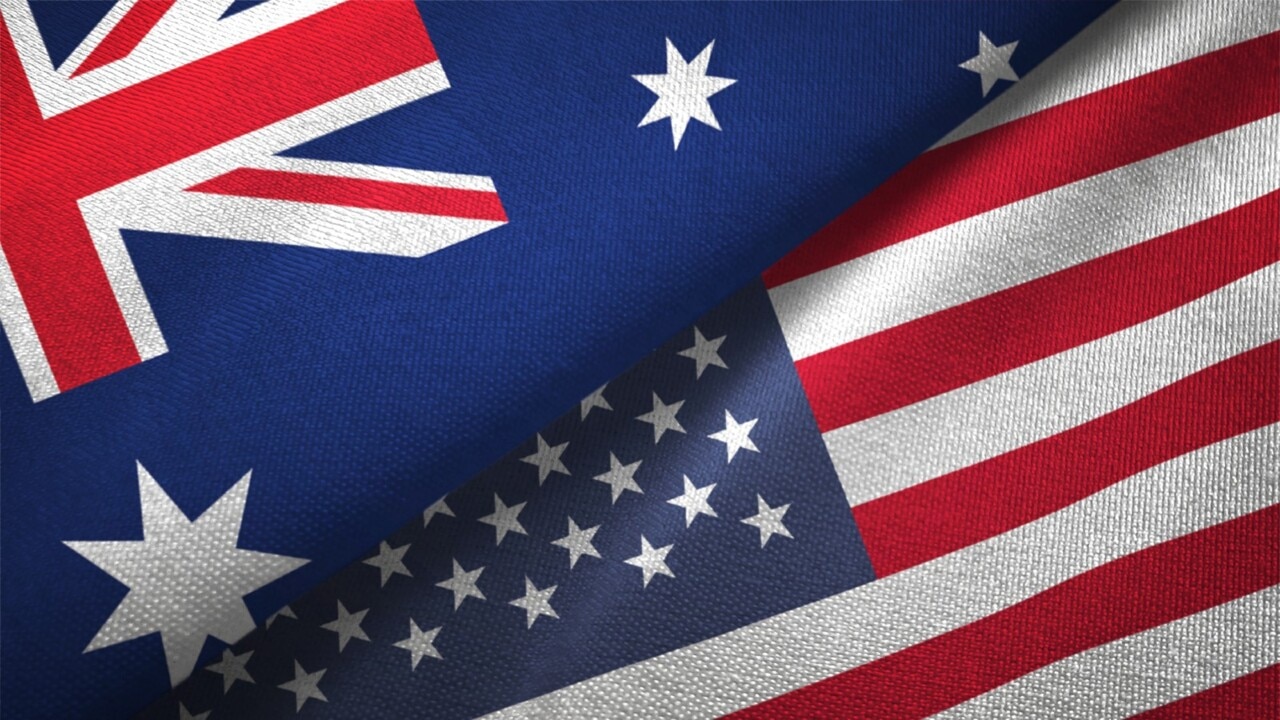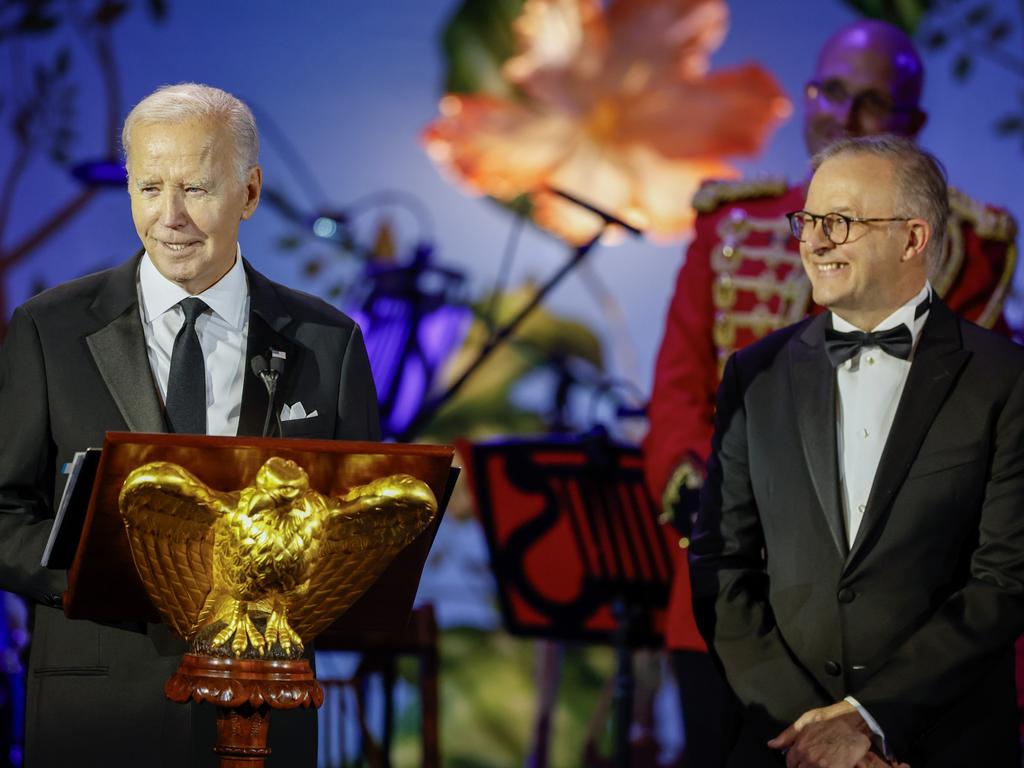Australia must pursue an independent foreign policy and not sacrifice its values to US or China


He had high-level access to policymakers and congressional leaders. All in the hope that he will go “all the way” with the US in the Asia-Pacific.
At the end of this week, Albanese heads to Beijing and Shanghai, having succeeded in unfreezing the bilateral relationship with China, and the buzz words in Canberra are “stabilisation” and “normalisation”. The Chinese will also, literally, roll out the red carpet for this visit, which is steeped in sentiment marking 50 years of diplomatic relations.
That Australia’s foreign policy requires a balancing act could not be on greater display with these two bookended prime ministerial visits. It is false to suggest, as some in the foreign policy establishment do, that Australia needs to choose between the US and China. With US politics so dysfunctional and China’s assertive regional posture, it would also be foolish to do so.

Australia is best served by having an independent foreign policy, charting our own way in the region and wider world, reflecting our values and interests, and beholden to neither great power. This is the way foreign policy should be conducted. We strengthen our standing with both the US and China if we articulate this.
The US is critical to our security, and we also share longstanding principles and ideals. The ANZUS treaty framework, exchange of personnel and equipment, and intelligence sharing should be valued. We also depend on China for vital trade and investment, and we would be a much poorer country without such commercial ties.
Albanese has walked this tightrope carefully. He developed a rapport with Biden, finalised agreements on critical minerals, clean energy, undersea cables, AI and advanced computing, and continued to support and advance the AUKUS nuclear trilateral defence pact. Nobody could accuse Labor of being anti-American or lukewarm on the Australia-US alliance or AUKUS.
Yet, Labor has been more effective than the previous Coalition government in balancing US alliance commitments with the economic imperative to normalise relations with China through concerted diplomacy. Chinese trade sanctions on Australian products have been lifted and journalist Cheng Lei released from detention. These are significant advances in the Australia-China bilateral relationship.
Foreign Minister Penny Wong has also deepened bilateral relations in the Asia-Pacific region. Wong has set a cracking pace travelling throughout the Asia-Pacific affirming Australia’s own identity and interests. Building and strengthening these relationships is critical given the uncertain future for Australia’s relations with both the US and China.


Australia is being drawn ever closer to the US military-industrial complex, yet its political system is so utterly dysfunctional that the future of these commitments, including AUKUS, is far from guaranteed. Albanese was not able to deliver a planned address to congress because of gridlock over the election of a new Speaker of the House of Representatives.
The US political system teeters on a precipice. It should never be forgotten that Donald Trump tried to overturn the 2020 election and initiate a coup d’état. His re-election to the presidency next year cannot be ruled out. Trump was bad for Australia. He wanted to impose tariffs on Australian exports, initially refused to honour an Obama administration refugee deal and was sceptical of alliances.
The Republican Party is now a Trump-MAGA party. US congress is yet to pass enabling legislation for AUKUS. If Trump wins the 2024 election, the future for AUKUS is doubtful. He could tear it up with little notice. MAGA Republicans in congress are already sceptical. Moreover, the US is stretched for attention and resources, and with wars in Europe and the Middle East this will be increasingly so.
A rising China that is increasingly assertive, militaristic and authoritarian under Xi Jinping has been challenging for Australia and every Asia-Pacific nation. China has also sought to influence our decision-making with a mix of economic coercion and bullying, cosy political relationships and donations, and even spying.
None of this is good for the Australia-China relationship. Indeed, there are lessons here for China too. More Australians view China as a security threat than an economic partner. China’s ambitions do pose a risk to regional stability and security. Yet, Australia is well served by maintaining a strong bilateral trade and investment relationship alongside regular dialogue at the highest levels of government.

It is in Australia’s interests to maintain the alliance with the US while engaging with China. But we must do so not as an always reliable deputy sheriff to the US in the Asia-Pacific or as a client state subservient to China, sacrificing principles in pursuit of commerce. Our security and our prosperity depend on walking this tightrope.
Many of these issues are well covered in Sam Roggeveen’s timely and important book, The Echidna Strategy: Australia’s Search for Power and Peace (La Trobe University Press). He charts a different course for Australia’s security that neither major party has endorsed, suggesting we are not threatened by China and can defend this island with a different defence capability than that now being purchased at vast sums. It is worth reading.
Albanese believes in a foreign policy grounded in realpolitik and pragmatism with a focus on engagement and a constructive role in global affairs. He views foreign policy through the prism of the US alliance, the UN and regional co-operation. This is the way he couched it when I asked him last year to define the foreign policy “doctrine” of his government.
We are now seeing this given full expression. With the US and China looming large in Australia’s global outlook, by necessity and opportunity, the challenge will be to continue to strike a balance in foreign policy. The risks are evident in drawing too close to the US or China. A more independent foreign policy reflecting our own identity and values, and in support of our own interests, could not be more important.






Joe Biden rolled out the red carpet for Anthony Albanese in Washington last week and honoured him with a state dinner, a private dinner, a military parade, bands, gun salutes and plenty of flags.